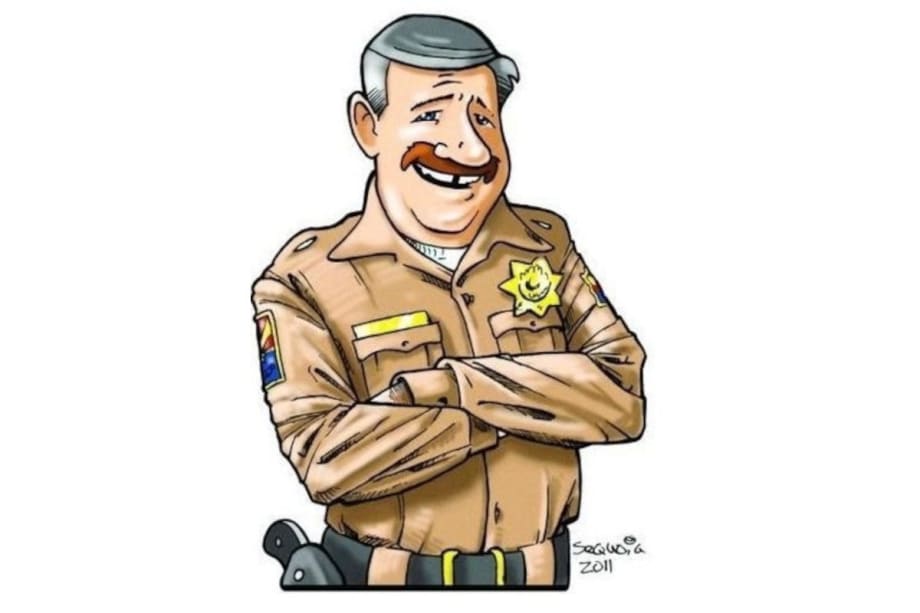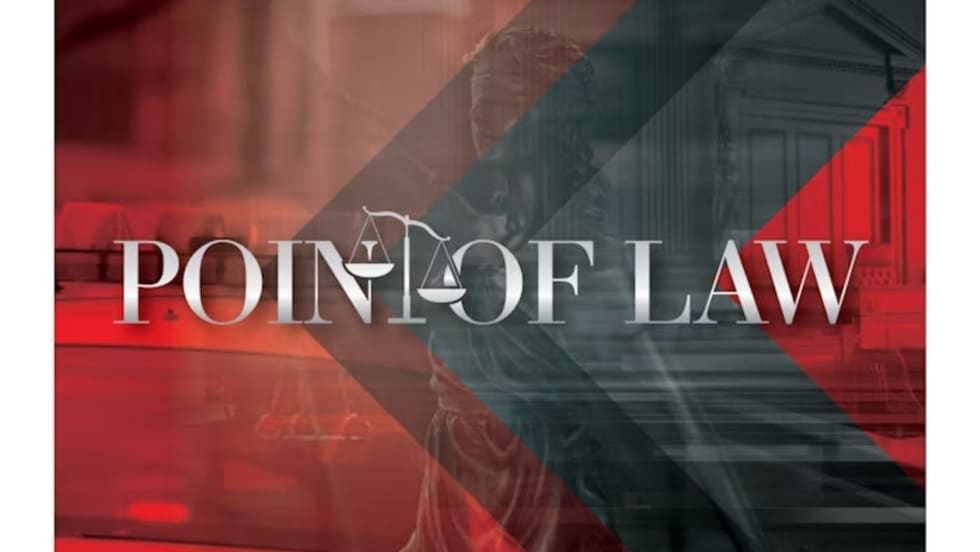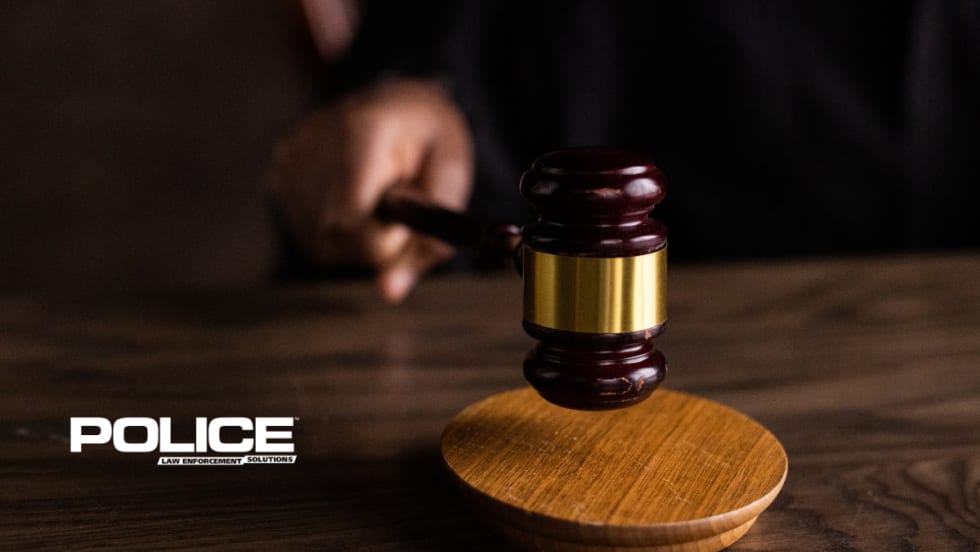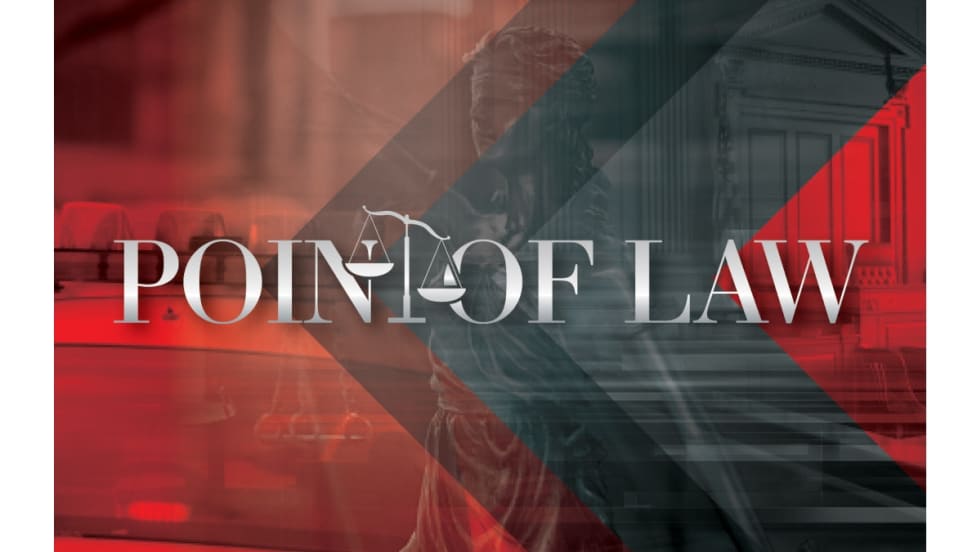The recent flurry of pardons and commutations by former president Joe Biden and President Donald Trump has been quite a topic of debate and confusion for those in and out of the law enforcement profession. Who can a president pardon? What are the limitations? Can a person refuse to accept a pardon or commutation? Can a president pardon himself? Is accepting a pardon an admission of guilt?
Dave Smith: Pardon Me
While a pardon restores your rights, it doesn’t erase your conviction, nor does it shield you from civil suits, seizure and forfeitures, or protect you from other prosecutions for crimes other than the ones pardoned.

POLICE
For law enforcement much of the concern is regarding the commuting or pardoning of hardened criminals as well as the hope that crime fighters convicted in the anti-police hysteria of recent years could be given relief from the questionable trials, conviction, and prison sentences they have endured. Much of the confusion today stems from the simple fact that media and the talking heads are often wrong either intentionally, or through sheer ignorance, or too often both.
First, whatever power “kings” or other rulers had in the past is irrelevant since the Constitution is America’s controlling document and in Article 2 it gives the President broad powers in regards to federal law. The Supreme Court over the decades has described limits and powers in that Article to make it a more clearly defined exercise of power. First, it gives the President power in federal cases only. State laws and civil suits are outside of the powers of the chief executive’s pardon. Thus, those wondering if a President of the United States can intervene on behalf of an officer charged and convicted in state court need to understand that is the bailiwick of a governor not the president.
Accepting a pardon is NOT an admission of guilt in spite of what the media thinks. If you believe you are innocent and offered a pardon and the president thinks you were unjustly convicted, say, in a court system like Washington, D.C., with its one-party jury pool and limited judiciary, it would make no sense to say that a pardon implies guilt being accepted by the recipient, it simply means only that a court has ruled someone guilty. The case pseudo-experts like to quote actually said a guy could refuse a pardon because he would have had to testify in court without the Fifth Amendment’s self-incrimination rights, and the discussion about implying guilt was not in the ruling only in the discussion or “Dicta!” In another case, interestingly, the court ruled you cannot refuse a commutation and need to get out of prison whether you want to or not.
While a pardon restores your rights, it doesn’t erase your conviction, nor does it shield you from civil suits, seizure and forfeitures, or protect you from other prosecutions for crimes other than the ones pardoned. This is where a great deal of concern and confusion comes in about a preemptive pardon on uncharged crimes. This is an unresolved issue to many but its history goes way back. Andrew Johnson gave one to a former Confederate Senator named Augustus Hill Garland and Congress tried to disbar him and all lawyers who served as Confederate officials. The Supreme Court heard the case (Ex parte Garland) and ruled that a person cannot be punished by Congress once they have received a pardon for that specific crime from the president. So it would appear, in spite of all the hollering, that Biden’s broad pardon of folks will stand as did Jimmy Carter’s preemptive pardon of the Vietnam-era draft dodgers.
However, remember that a preemptive pardon takes away your Fifth Amendment privileges regarding the potential offense pardoned, doesn’t protect you from state prosecution for state laws, future crimes, or civil proceedings. Whether state prosecutors follow up on any of the current controversy waits to be seen. But for those in law enforcement angry at the perceived injustice of state and local prosecutions of men and women serving and protecting their communities and hoping a new administration will focus on either commuting or pardoning those convicted, it is important to understand what rights a president has and the restrictions on such powers. Governors are given such pardon powers according to each state’s constitution and laws and it would often need to be a change in those offices that would be necessary for relief.
Regardless of the actual effect of the pardons on the recipients, I believe it creates a sense for society to reevaluate how we have been conducting the business of prosecution. Witch hunts and show trials will become a thing of the past and some pardons will bring a new awareness to the American mind, an example of which is two D.C. Metro Police officers President Trump discussed in his initial press conference who had little chance for acquittal in an emotionally charged anti-cop trial. Hopefully, the constant fear of prosecution for merely doing your job will become a thing of the past and whatever we may think about the recent tidal wave of pardons and commutations, the ripple effect may prove to be a long-term good.
More Point of Law

Point of Law: The Limits of Electronic Searches
Can an individual be prosecuted for despicable criminal conduct based on evidence obtained in violation of the United States Constitution? Ultimately, the Ninth Circuit judges wrote, “In the circumstances of this case (United States v. Holcomb, 23-469 (9th Cir. 2025)), respect for the Constitution and the rule of law requires an answer of “no.”
Read More →
Trump Issues Order Cutting Federal Funding in Cashless Bail Jurisdictions
<strong>“</strong>Cashless bail policies allow dangerous individuals to immediately return to the streets and further endanger law-abiding, hard-working Americans because they know our laws will not be enforced,” the administration said.
Read More →
Justice Department Sues Los Angeles Over Sanctuary Policies
The DOJ said in a press release that the “sanctuary city” policies of the City of Los Angeles are illegal under federal law.
Read More →
Understanding Officer-Created Jeopardy
Officers can be criminally prosecuted for using force when their actions led to escalation during contact with subjects.
Read More →
Point of Law: The Limitations of Search Warrants
In the Tenth Circuit case of Cuervo v. Sorenson, the Court ruled officers cannot deviate from the language of the warrant.
Read More →
DOJ Dismisses Consent Decrees Affecting Louisville and Minneapolis Police
The Civil Rights Division will be taking all necessary steps to dismiss the Louisville and Minneapolis lawsuits with prejudice, to close the underlying investigations into the Louisville and Minneapolis police departments.
Read More →
New Michigan Bill would Give Officers Civil Immunity in Self-Defense Cases
House Bill 4404 would create a presumption of civil immunity for individuals who are cleared criminally after using force in self-defense, shifting the burden of proof onto plaintiffs.
Read More →
Seattle to Pay Police Captain $1 Million to Settle Lawsuit
Seattle police Capt. Eric Greening sued former Chief Adrian Diaz last year alleging that Diaz retaliated when Greening brought up concerns about racial and gender discrimination.
Read More →
Washington Agencies Ordered to Not Delete Critical Facebook Contents
Jim Leighty, a local activist, filed two federal lawsuits last year claiming both agencies deleted or hid critical comments he had written below multiple posts, while keeping comments that were pro-police in nature.
Read More →
Washington State Attorney General Sues Sheriff for Helping Immigration Enforcement
The lawsuit claims the Adams County Sheriff’s Office has illegally held people in custody based only on their immigration status, helped federal agents question people in custody, and given immigration officials confidential personal information.
Read More →
